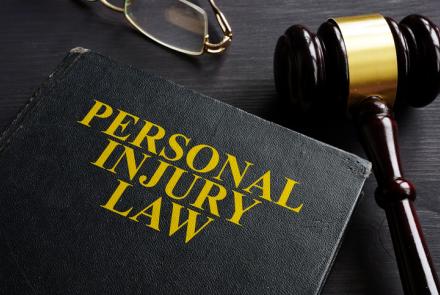
A personal injury case involves a claim for monetary damages (compensation) by an injured victim against the person, persons and/or entities that are at fault for causing the injuries. In California, the injured person will be entitled to the legal measure of damages allowable to the extent there was negligence (the failure to take proper care) in causing the injury.
A personal injury case is a case where a person injured through the fault of another seeks compensation from the person at fault for causing the injuries and damages. California Civil Code Section 1708 states that “Every person is bound, without contract, to abstain from injuring the person or property of another, or infringing upon any of his or her rights.” The injured person is entitled to the amount that will compensate for all the detriment proximately caused thereby, whether anticipated or not. California Civil Code Section 3333.
How does a personal injury case work?
When my clients ask "how does a personal injury case work?” I tell them that, broadly speaking, there are three main components:
(1) liability: the injured person must prove someone else (a third-party) was “at-fault” for causing their injuries;
(2) damages: the injured person must prove the harm they suffered and that the harm was caused by the injuries;
(3) payment: identifying and confirming who is going to pay for the damages. This is typically insurance coverage, but not always.
Personal injury cases arise out of many circumstances and situations. Often injury claims are the result of a motor vehicle accident. For example, if a person (Dan) drives a car into an intersection through a red traffic signal and collides with a car proceeding through the intersection on a green traffic signal (Pam), then Dan will be at fault and will owe compensation to Pam for the harm and damages caused.
How long does a personal injury case take?
A personal injury case can generally take anywhere from six months to two and one-half years after the incident date to resolve. This will depend on many factors including how significant the damages are, whether there are disputes about who is at fault and the extent of the damages and harm, and the county where the case must be filed, as some courts take longer for a trial date than others. Some cases will take longer, as for example if there is an appeal involved.
Are there deadlines in a personal injury case?
There are many deadlines in a personal injury case. A claim for damages can be made at any time after the accident date and up to the deadline imposed by the law of that state. The Statute of Limitations requires personal injury cases to be filed in court within a specific period of time after the date of the accident. In California this is generally two years from the accident date but there are many variables that may extend or shorten that deadline, such as where claimant is a minor or where the claim is against a public entity.
If this deadline is missed the claimant will likely lose their legal claims entirely. Once a case is filed in court, there are many deadlines that must be satisfied or the claimant will be subject to consequences for the failure to satisfy the deadlines.
Because there are deadlines and other complicated matters associated with pursuing a legal claim for damages in a personal injury case, a person who has a personal injury claim would benefit from legal representation. See our article “Should you Hire an Attorney for a Personal Injury Case”.
